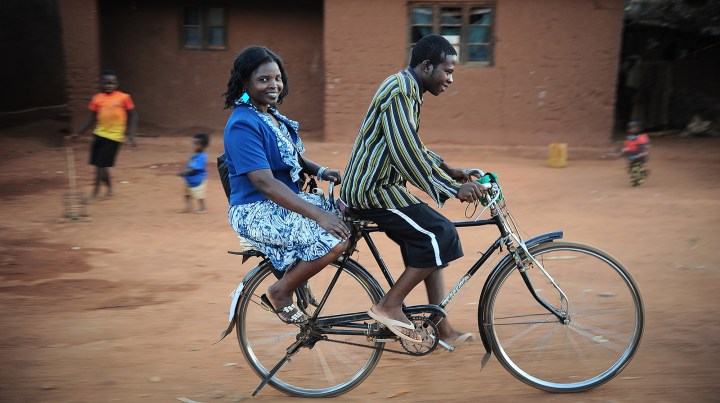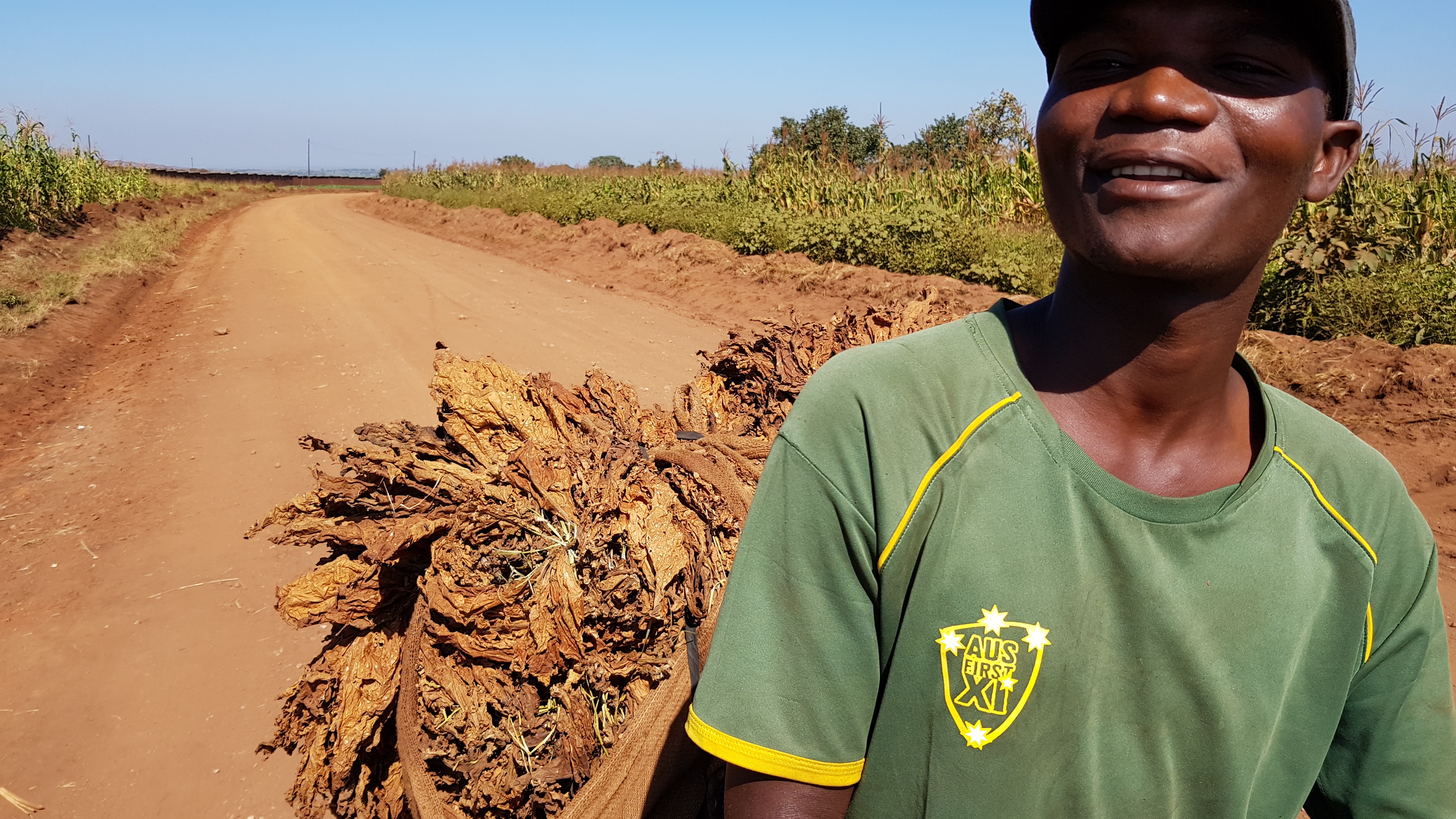OP-ED
Malawi’s 21 May Election: An opportunity to align politics with people’s needs

Lilongwe’s Bingu wa Mutharika International Conference Centre on 29 March. The scene of the first Presidential Debate in the run-up to Malawi’s May 2019 election. Challengers Vice President Saulos Chilima, Minister of Education Atupele Muluzi and Lazarus Chakwera of the Malawi Congress Party squared up in front of a crowd of around 1 000 and a live television audience. The event highlights key questions about where Malawi’s burgeoning population would find income and employment, and what might happen if the government did not change its ways.
It was quite a social occasion. Big, colourful dresses and elaborate hairstyles were on display. Donors and diplomats filled the right-hand side of the front few rows. Physically challenged attendees had their own row while signers for the hearing impaired worked away in the aisles. The three contenders stood while providing two-minute answers switching between English and Chichewa, carefully scripted to sometimes long-winded questions.
Malawi has come a long way, at least politically. It’s impossible to imagine such a scene, and the boisterous crowd clapping, cheering and jeering, in Kamuzu Banda’s time when the population lived in fear, and whispers, rather than free speech, were the order of the day.

Chikwera, Chilima and Muluzi: The 1st Malawi Presidential Debate, 29 March 2019. Photo: Greg Mills
Chikwera, Chilima and Muluzi: The 1st Malawi Presidential Debate, 29 March 2019
But there are limits to this progress.
The current president, Arthur Peter Mutharika, chose not to pitch up. Some said he did himself less harm that way. It’s an indicator too how routinely poor accountability on governance and delivery is. This is not helped by the effective three-way split in the opposition.
Malawi, like other countries, is policy rich but implementation poor. The policy sounds about right, and there are lots of institutions and processes which look right, but which don’t work right – what is termed “isomorphic mimicry”.
This is not the only disjuncture. Governance, skills, policy, data, foreign relations and the elite mindset are all misaligned to deal with the core problems of poverty, corruption, monopolies, and a lack of diversification.
During Kamuzu’s time, everything was micro-managed from the top, fly-whisk in the hand of the waist-coated and top-hatted elder in the Church of Scotland. His immediate successor Bakili Muluzi, the father of Atupele, retained Banda’s power structure.
So too have those who have followed.
Notably, none of the candidates at the debate focused on the importance of growth. Their focus was on redistribution. Yet effective redistribution depends on making a surplus and not just making savings through cutting out corruption, a blight which all in the debate stressed given the poor recent rent-seeking record.
As ever, politics is the problem. While solutions look technically correct on paper, often to rhetorically please the donors who give almost as much money annually ($1.1-billion) as the budget ($1.5-billion), government seldom wants or believes in them. Even though they have toughened up on governance and limited direct budget support since the Cashgate scandal which afflicted Joyce Banda’s government in 2014, the impact of donor spending is diffused through a large number of projects.
Some other questions remain the same.
The first half of the Presidential Debate was dominated by questions on agriculture: about land ownership (where women are unable to own land in some parts); climate change; environmental management; the Green Belt initiative; the effectiveness of the Farm Input Subsidy Programme (FISP); the inclusion of women; and the future of tobacco, Malawi’s principal export, which Atupele Muluzi described as “our gold”.
The prominence of agriculture is hardly surprising for a country where 84% of the population lives in the rural areas, and where, in the estimation of the Reverend Chakwera, 80% of them are dependent on farming.
Tobacco farmers are the lucky ones, producing a cash crop for international markets.
The majority of Malawians remain, however, locked into subsistence farming, eking an existence from a plot of maize with, occasionally, soya or ground-nuts on the side.
Malawians enjoy, if that’s the right word, an average per capita income of just $420, only twice that at independence in 1964. It remains today, as then, among the five poorest countries in the world. This is an average with many of the 2.5-million farmers countrywide earning little more than $75 per year. At the international income rate of $1.90 per day, Malawi’s 2010 poverty rate was 71%, an increase from 64% in 1997.
Continued poverty reflects Malawi’s population increase from under four million in 1964 to 19 million today. In fact, GDP has increased by ten times in real terms since 1964, though the population increase has nullified half of the gain.
Today more than half the population is under 18. And the projection of a 45-million population by 2045 does not give heart. Nor do the bands of young men lounging around from village to village. This is a country where farmers struggle to meet their daily calorific requirements, most living below the poverty line, and where the annual milk consumption is a measly five litres per person, against the World Health Organisation’s recommended minimum of 42 times that volume, and well below the African and global averages of 37 litres and 104 litres respectively. The population is increasing faster than opportunities.
The reason for continued poverty is related to the varying strength of the connection to international markets. This can be seen in the status of those farmers contracted to tobacco producers through the Integrated Production System (IPS), which provides fertiliser, seedlings and other inputs including technical advice and training in the field in return for a guaranteed market and price, reducing the farmers’ risk and enabling them to increase their yields. Training and monitoring is essential in a country where literacy is at 62% and secondary school enrolment just 31%.
The problem for Malawi is, however, that the global tobacco market is stagnant, otherwise more Malawians would get onto this system and get globalised as a result.
The morning following the Presidential debate we encountered Serious Chimpanje cycling along the Chitukula Road, north-west of Lilongwe, notable for his bright green and yellow Australia cricketing shirt and 20kg bundle of tobacco strapped to his bicycle’s carrier. He was taking his leaves to the local trading centre “because I need food” he said. He was likely to get just 220 Malawian Kwacha per bag – about $0.30 and about one-sixth of what an IPS farmer might expect, a price at which only the middle-man could be profiting from his toil.

The road to Chitukula, Serious Chimpanje and his cheap 20kg tobacco bundle. Photo: Greg Mills
No country has ever developed from subsistence farming. Malawi’s challenge is to commercialise and diversify. Yet there is an “exclusive growth political-economy cycle, explaining why some policies occur and why some have never changed since Kamuzu Banda’s time, because the incentives for control and privilege trump those for change and growth.
This helps to enlighten why, for example, as much as 80% of export and import traffic is carried on the road, despite the comparatively high costs. The connections of politically-exposed persons with trucking firms is mentioned as the most likely reason, starting during Bakili Muluzi’s presidency.
It also explains why trade and tariff policy is a complete mess and is shaped according to the needs of special interest groups, or why government pretends to reform or structure the correct institutions, but things just continue as before, or why the established private sector remains small and under the control of a tiny group, or why the bureaucratic response is and the country has failed to open up tourism and improve its competitiveness in such offerings, or why the country failed fundamentally to respond to a changed world after its own political “independence” in 1994.
To transform, Malawi requires a government that makes decisions in the interests of the majority, not a common trait where monopolies and vested interests rule. It will also necessitate finding the means to enable farmers to improve their yields in other, alternative crops such as groundnuts (in which Malawi was once the world’s largest producer) and soya, both of which will require the right policy choices and incentives to prosper. For example, export bans and the setting of minimum prices tend to upset the market and subsidise the urban areas at the expense of the rural poor.

The Central East African Railways could do with some TLC and a political push. Photo: Greg Mills
The upside is obvious, and huge. This is a poor country where a small uptick in wealth is relatively large. It has notable advantages, including rich soils and plenty of water. It can offset the disadvantages of location by employing an underutilised rail network, where import and export transport costs are less than half as much as road. And it has the basis of a usable and replicable agriculture extension and market system in the tobacco business.
Perhaps this time around these elections will be different. The candidates at the debate promised that. But realising this promise will require aligning politics, policy and the needs of Malawi’s burgeoning population. DM
Dr Greg Mills has been in Malawi for the Brenthurst Foundation. This is based on a longer Discussion Paper out this week and available on the Foundation’s website at www.thebrenthurstfoundation.org

















 Become an Insider
Become an Insider